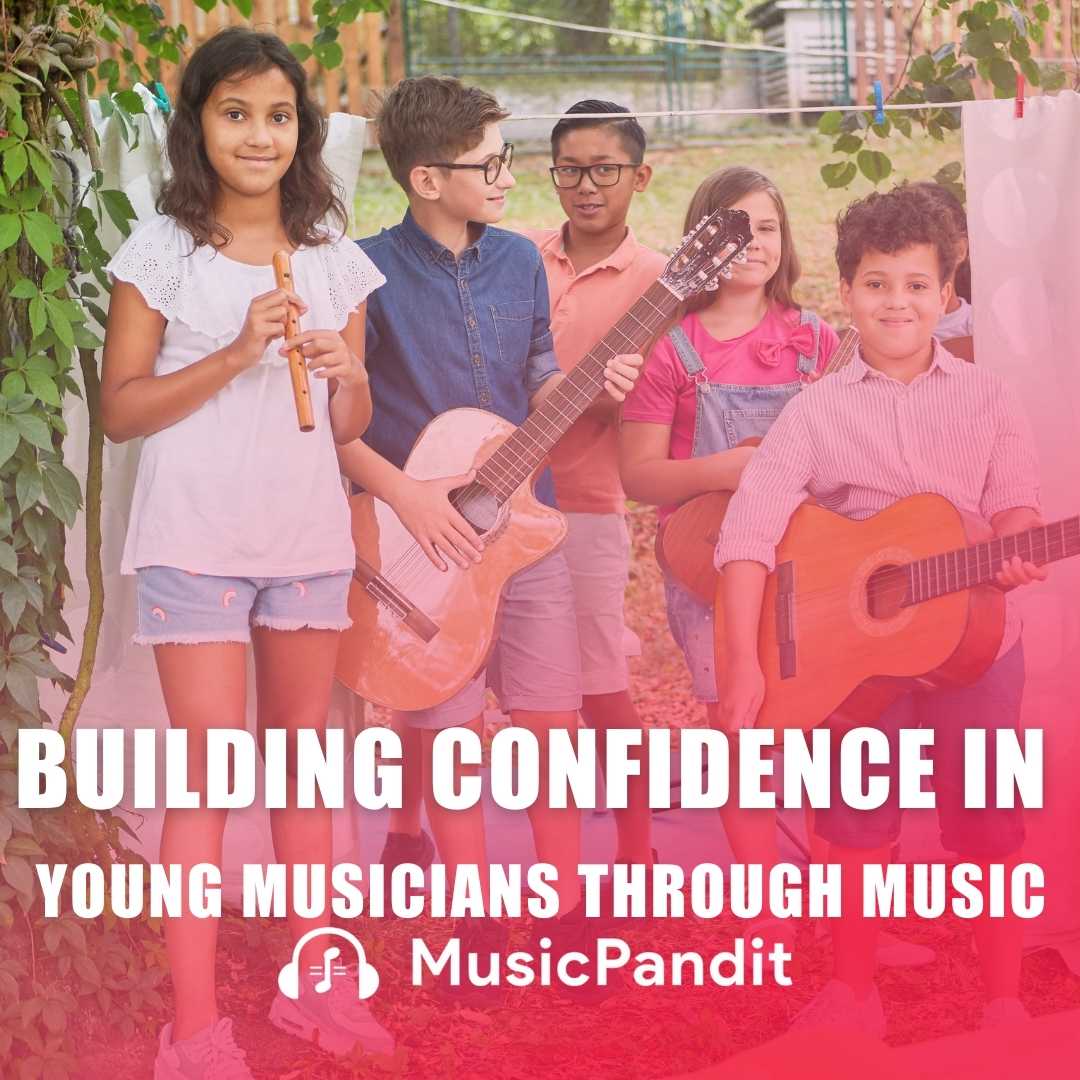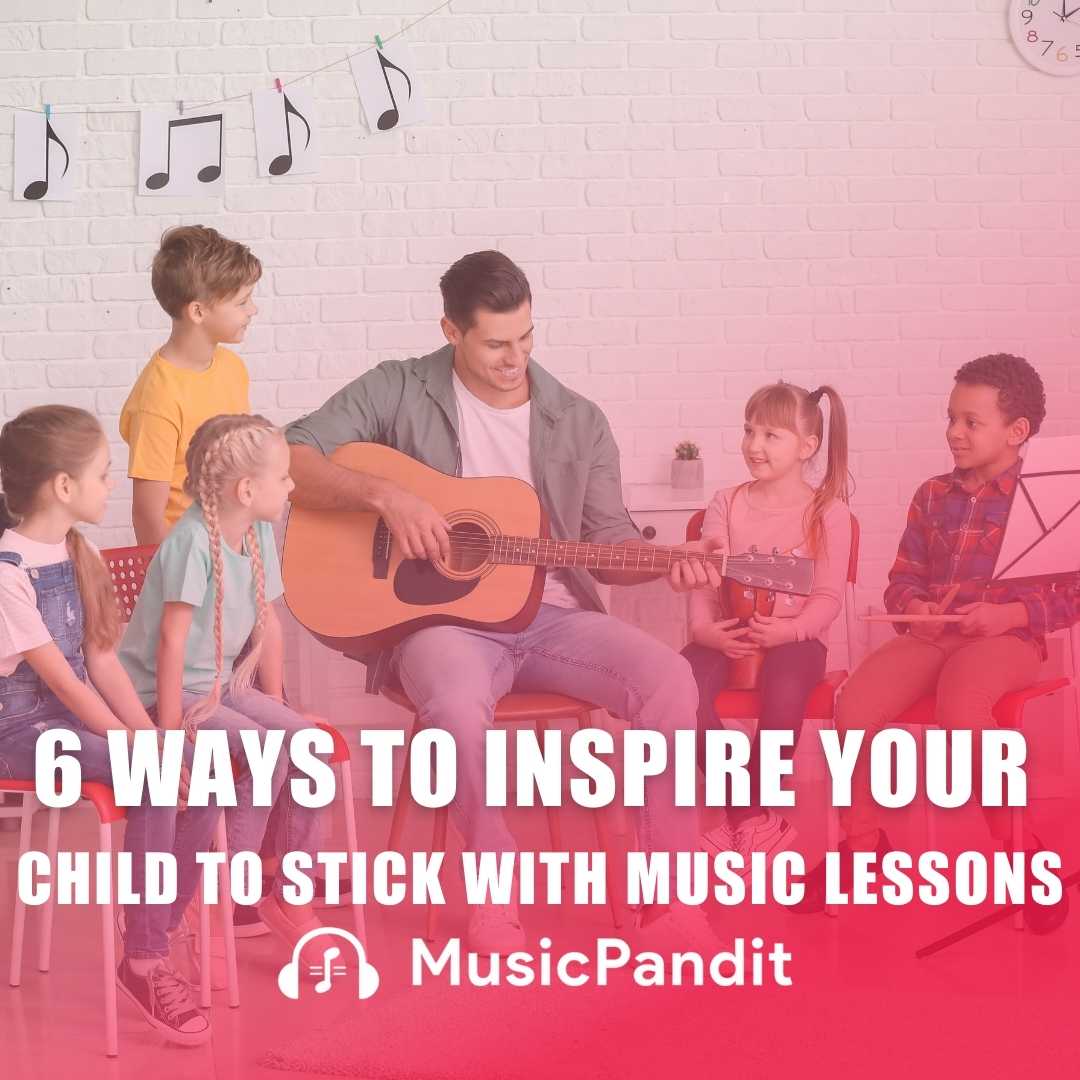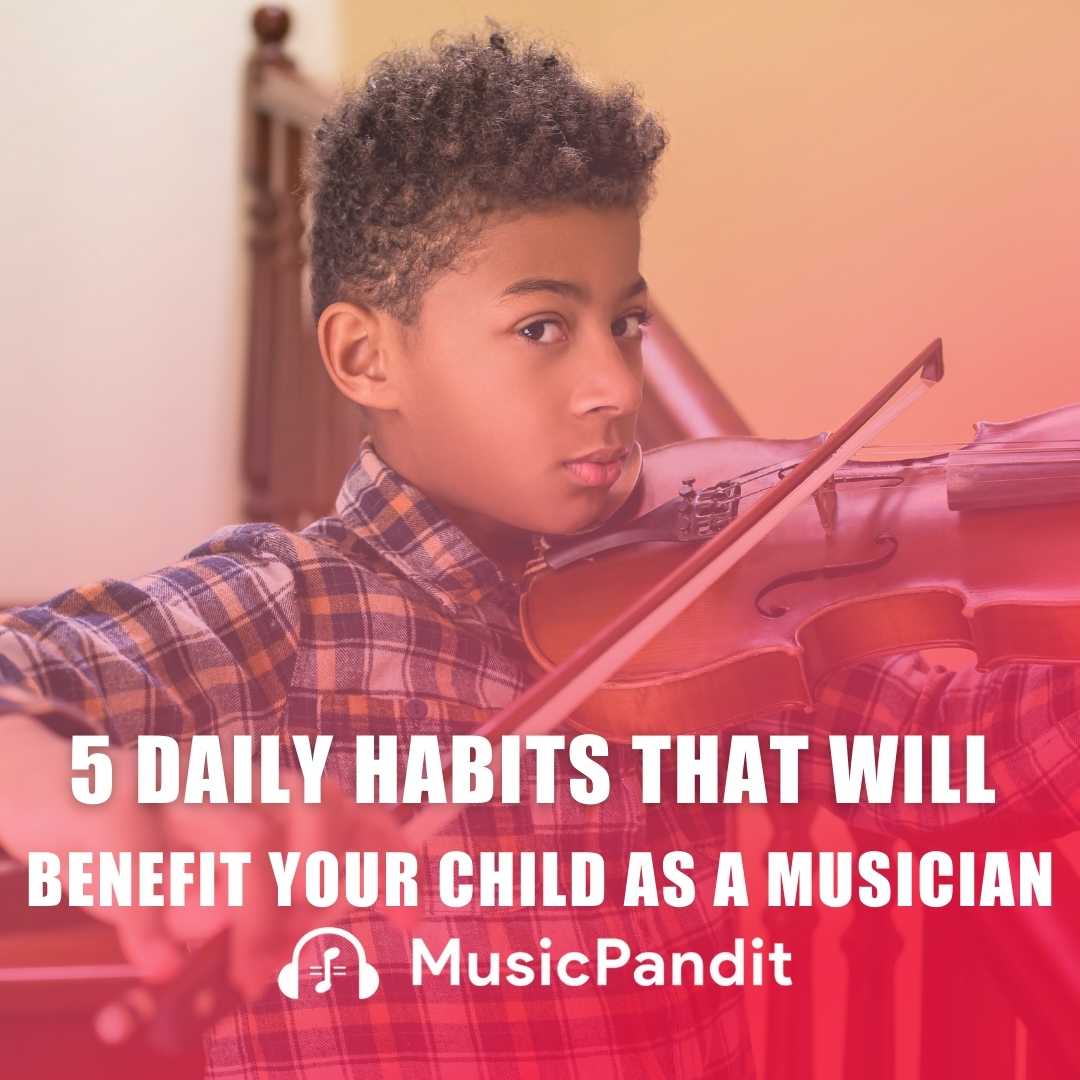Are you a parent looking to nurture your child’s musical interest in the right way? With years of experience as musicians, teachers and parents ourselves, we know the importance as well as benefits of introducing children to music. As a matter of fact, apart from all the research papers that have been published, we can tell you for sure that music has the power to heal, be a source of inspiration and ignite creativity in not only children but people of all ages. Besides, music also has the ability to evoke certain emotions and even captivate hearts, making it an universal language for all of us.
That being said, when it comes to music and children, parental guidance is crucial to nurturing their musical interests. If your child is still young, you need to be more involved and guide them closely in exploring the wonderful world of music. By doing this, you will allow your child to experience joy and freedom to express many things.
On that note, we will discuss several practical tips in this article that any parent can apply to develop their child’s musical interests in the right way. Additionally, you will also learn how to foster a love of music in them for a lifetime.
However, before we explore these tips we will briefly understand the benefits of music for children.
The Benefits of Music for Children
Engaging with music from a young age offers numerous benefits. This activity not only enhances a child’s cognitive skills, boosts memory or improves concentration but it also promotes emotional well-being. Music further teaches them patience, discipline, and teamwork especially when children participate in group activities.
Tips to Encourage Your Child’s Music Interests
If you’re looking for some ways to encourage your child to start playing music, here are a few useful tips to help get you started!
Create a Musical Environment at Home
When you surround your child with music from an early age it can have a profound impact on their musical development. You can play a variety of songs from different genres and styles at home. You can introduce them to different instruments, and encourage them to explore various musical activities. We will discuss things in more detail below.
1. Become a Role Model.
The easiest and best thing that you can do to develop your child’s musical interests is to engage in music with them. You don’t have to be a pro or trained musician to create fun and lasting musical memories. You just have to show them the importance of music in daily life. You can do this by singing along with your child to their favourite songs or listening to music from your child’s favourite movie, series, etc. A home karaoke machine sounds like a good plan.
2. Play Music At Home
You can always play music at home and help your child listen to a variety of songs and melodies. Let them hear songs from different genres classical to contemporary to others. You will expose your child to different styles and help them broaden their musical horizons.
3. Musical Instruments for Exploration
Introduce your child to basic instruments. You can start with kid friendly instruments like xylophone, small scale keyboard or a ukulele. These instruments are easy to learn and play. If your child is older, you can introduce them to guitar, drums and other instruments. Let them experiment and create their own tunes.
4. Dance and Groove Together
From our experience we can say that it is not always about singing or playing an instrument. Dancing to the music with your child is also a fun way to instil a sense of rhythm in them. Play them their favourite songs and just go bonkers with your child. This will be a fun activity. You can also try synchronised steps that follow the beat.
Nurturing Creativity Through Musical Activities
Whenever you have the time, engage your child in interactive musical activities. This will make learning enjoyable for them. In addition to dancing together, sing along with their favourite songs, or best, create a family band.
Alternatively, you can encourage them to participate in school music events, talent shows, or community shows amongst others. All these experiences will only boost their confidence as they showcase their talent.
1. Composing Simple Melodies
Teach your child to create melodies using a few basic notes. You can start by helping them learn some melodies first and humming to them. They can learn popular nursery rhymes and play them at the early stages. Once your child becomes familiar with playing tunes on their instruments, you can encourage them to create melodies on their own. This can lay the foundation for future compositions.
2. Encourage Lyric Writing
In addition to creating melodies you can inspire your child to write lyrics about their thoughts and experiences. This is actually a therapeutic way to express emotions.
Attending Live Music Events
Another way to expose your child to music is by attending live performances, concerts, recitals, or music festivals. This is a fun way to spend a day with your child as well. In any case, by experiencing the energy and artistry of professional musicians it can be incredibly inspiring and motivational for your child to pursue their own musical aspirations.
This has really happened to most of us. We have found inspiration and music has been there with us for a long time. During the shows, you can guide your child to observe and learn from skilled performers, fostering a sense of admiration and aspiration.
You can also engage with your local music community. It provides networking opportunities and a sense of belonging for your child.
Online Music Classes
Well, if you find that your child is interested in music then you can consider enrolling your child for music lessons. Formal classes can be a transformative experience. Whether it’s piano/keyboard, guitar, singing, or any other instruments, formal music education can provide them with a solid foundation. They will further develop essential life skills such as discipline, focus, and perseverance.
You can research music schools who specialise in teaching children and ensure they have a supportive teaching style.
1. The Rise of Online Learning
In today’s digital age where technology has advanced so much, online music classes have gained a lot of popularity especially among the young children. This format of music learning offers greater flexibility, allowing children to learn effectively (as effective as offline learning or even more) and they can move on with the lessons at their own pace.
2. Online Music Classes Benefits
With online music classes students further get access to expert instructors from all over the world, comprehensive learning materials, and the opportunity to connect with fellow students from different parts of the world.
Making Practice Playful
Technology can be a valuable tool for nurturing your child’s musical interests. There are a lot of music apps, online tutorials, and interactive platforms that offer engaging and educational content.
You should guide your child to experiment with music learning apps which include virtual instruments and maybe at a later stage music production softwares allowing them to explore their creativity and develop their technical knowledge and own musical compositions.
1. Gamify Music Practice
You can turn your child’s practice sessions into games. During these you (or the music instructor) can set challenges and rewards to keep your child motivated.
However, you should encourage the habit of daily practice. For this you can set up a quiet practice space for your child where they won’t be disturbed. This will be the go-to place when they are looking to play music. You should also remember that parents can always make for great practice buddies!
2. Jamming Sessions with Friends
Many of the bands we know have started early on, when the members were in school. Most of them will say they used to jam together doing covers of popular songs. As they matured and developed the skills they came up with their own originals and are known to be what they are today. So, allow your child to jam with friends. Collaborative music-making can be a source of immense joy. Who knows they might be “The Band” in the making.
Recognizing and Celebrating Progress
One of the most important things that you can do for your child is acknowledge and celebrate your child’s musical achievements. This can be anything which may include mastering a new song, performing in front of an audience, or receiving recognition for their musical abilities.
You can praise their efforts and provide positive reinforcement. Ultimately, this will boost their confidence and motivate them to continue their musical journey. Celebrate milestones, no matter how small. These moments will keep your child inspired. You can also give your child a platform to share their music. Whether it’s a family gathering or a small online showcase, let them shine.
1. Show Interest in Your Child’s Musical Pursuits
Apart from praising them you can be interested in what they like about music. You can ask questions about their favourite singer or band. If they are learning music, you can even ask them to teach you a new chord or rhythm they’ve recently learned. Doing this is an opportunity for your child to connect with you. In essence, you are not only bonding with your child but showing the value you place on music in everyday life.
Foster a Supportive Community
Connect your child with other young musicians or music enthusiasts who share their passion. Encourage them to join school bands, choirs, or local music groups. Being part of a musical community will not only provide them with opportunities for collaboration and growth but also foster a sense of belonging and camaraderie.
As a parent you also have to remember, rather than treating music like any other subject, you will have to create a clear distinction so that your child sees music as something he or she wants to do. To help your child develop a good mindset you have to let him or her play an instrument or music they’re actually interested in.
Conclusion
All children have the potential to be musical! Therefore, by creating a musical environment, exploring different genres, and providing opportunities for learning and growth, you’re shaping your child’s passion and creativity.
In any case, by following these tips you can definitely help your child develop a lifelong love for music. Meanwhile, the journey is as important as the destination, so enjoy every moment of their musical exploration and growth.














